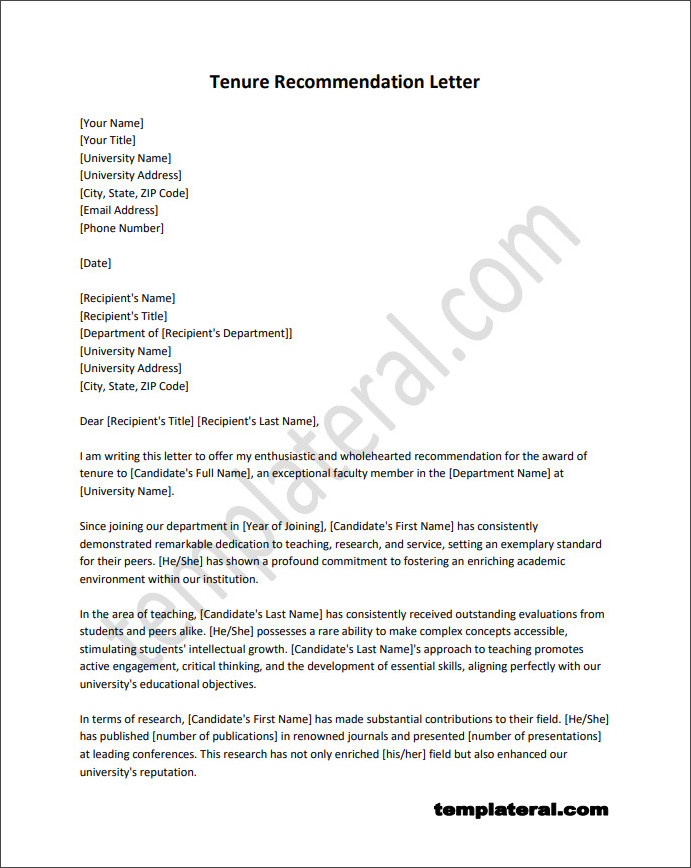
Are there lawsuits against tenure-review letter authors?
Lawsuits over tenure denials are rare, and lawsuits against tenure-review letter authors are rarer still. Tenure decisions are crucial in academia, and the tenure-review process involves careful evaluation by experienced scholars who provide confidential letters assessing a candidate’s qualifications. While candidates may be disappointed by a tenure denial, it is important to note that the decision is typically based on a comprehensive review of their academic record and performance. Challenging the decision through legal means is a complex and arduous process, as the burden of proof lies with the plaintiff. Therefore, it is highly uncommon for individuals to pursue lawsuits against the authors of tenure-review letters.
What is a tenure recommendation letter? What are the purpose and benefits?
A tenure recommendation letter is a document written by a colleague or supervisor that provides an evaluation of a faculty member’s performance and qualifications for tenure. It is an important component of the tenure review process in academic institutions. The purpose of this letter is to support or oppose the granting of tenure to the faculty member under consideration.
The benefits of a tenure recommendation letter are numerous.
- It provides an opportunity for the evaluator to thoroughly assess the faculty member’s teaching, research, and service contributions. This allows for a fair and comprehensive evaluation of the candidate’s qualifications for tenure.
- The letter helps the tenure committee gain insights from a different perspective, as it is written by someone who has worked closely with the candidate and can provide valuable insights into their strengths and weaknesses.
- A strong tenure recommendation letter can greatly influence the tenure decision, as it carries significant weight in the committee’s evaluation process.
How do I write a letter of recommendation for tenure?
Here are some steps to follow when writing a letter of recommendation for tenure:
- Introduction: Begin the letter by addressing it to the appropriate individual or committee. State your position and relationship to the candidate, and mention how long you have known them and in what capacity. This will establish your credibility and familiarity with the candidate.
- Summary of the candidate’s achievements: Provide a brief overview of the candidate’s accomplishments, highlighting their most significant contributions to their field of study or profession. Include specific examples or instances where the candidate has excelled in their work.
- Evaluation of teaching and research: Assess the candidate’s teaching abilities and research skills, commenting on their expertise in their field and their ability to effectively communicate complex concepts. Discuss any awards, grants, or publications they have received, emphasizing their impact and relevance.
- Evaluation of service and leadership: Evaluate the candidate’s involvement in service activities, such as committee work or community outreach, and their leadership qualities. Highlight any instances where the candidate has demonstrated initiative, collaboration, and a commitment to the betterment of their department or organization.
- Comparison to peers: Compare the candidate to their peers or colleagues, emphasizing their strengths and unique qualities that set them apart. Provide specific examples or evidence to support your comparisons, showcasing the candidate’s exceptional abilities.
- Conclusion: Conclude the letter by summarizing the candidate’s qualifications and expressing your confidence in their ability to succeed in their tenure position. Offer to provide additional information or answer any questions the committee may have.
Writing a letter of recommendation for tenure requires a thorough understanding of the candidate’s qualifications and accomplishments. By following these steps and providing a detailed and persuasive recommendation, you can help support the candidate’s case for tenure and contribute to their success.